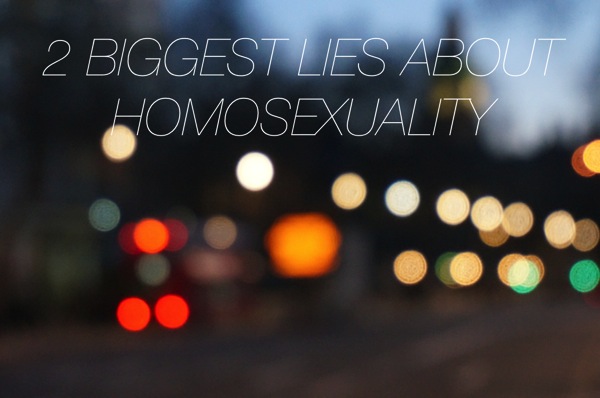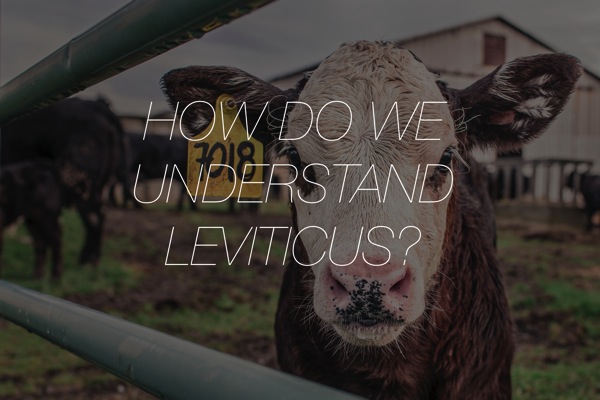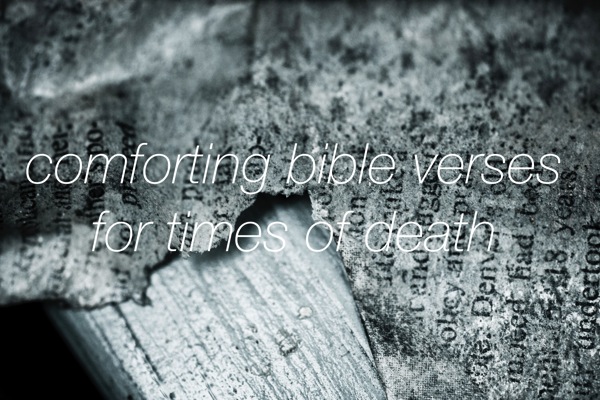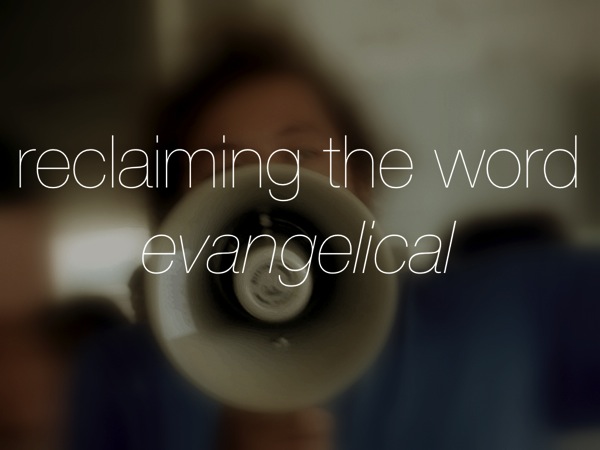What makes a church a church? There are all kinds of things that we can use to describe the ways that we prefer our churches to look, sound, smell, or feel, but what are the things that define the Christian Church?
Martin Luther described the church simply when he said, “A seven year-old child knows what the church is, namely, holy believers and sheep who hear the voice of their Shepherd.”
From preaching to the band, from membership to sacraments, from worship to the parking lot, the practices that shape the life of a congregation are endless. So what matters most?
What are the marks of a Christian Church?
Martin Luther listed seven marks that we can recognize the church by. His list is incredibly helpful and I thought it would be helpful to re-state many of the themes that Luther suggested but to say it in different words and add some nuances that are helpful for our own conversations. At the heart of my list is what you could find in Luther’s work “On the Councils and the Church, 1539."
Word.
There is no church without God’s word. God works through his Word and God’s church is formed by this Word. Our churches should be places that are shaped by the word and who love and cherish the word. In addition to the scriptures, this also would include the “visible word” or the sacraments. God is at work in bread, wine, and water giving the gifts he promised to give just as he does through the preaching, teaching, and reading of Scripture.
*in Luther’s list, this would include the marks of God’s Word, Baptism, and Lord’s Supper.
Mission.
God’s church is given a mission. And that mission is to proclaim the message of the forgiveness of sins.
And when he had said this, he breathed on them and said to them, “Receive the Holy Spirit. If you forgive the sins of any, they are forgiven them; if you withhold forgiveness from any, it is withheld.” John 20:22-23
The church isn’t the place for good advice (although it might have some great advice), it is a place for the Good News. The church proclaims God’s promise of forgiveness. It does this publicly and on behalf of the congregation in the vocation of the pastor and it does it daily in the personal lives of the church members in their homes, neighborhoods, and workplaces as members are given opportunities to speak God’s word of Law (binding sins) and God’s word of Gospel (forgiveness).
*in Luther’s list, this would be the mark of the Office of the Keys
Suffering.
The most surprising in Luther’s list of marks of the Church is suffering. For Luther, the Christian is formed in his suffering and the Church is defined by its understanding of suffering. The life of a Christian as a disciple of Jesus is a life that centers on suffering.
The disciple is called to “deny himself and take up his cross and follow me.” Perhaps that mark of suffering might even be more simply considered the mark of disciples. After all, is there such a thing as a disciple of Jesus who doesn’t suffer?
But to be clear, this isn’t about finding a cross to bear. Suffering is inevitable. We don’t need to go looking for our crosses. The disciple of Jesus will find suffering in the midst of the daily struggles of life. This often might be found in the depths of pain, hurt, and tragedy. And it at times will come in the midst of the smaller struggles of daily life.
It might be better stated that suffering in and of itself isn’t the mark of the church, but the way in which the Church suffers that is the mark. The disciple of Jesus suffers with eyes fixed on the one He follows. The sufferer focuses on the one who suffered for us.
Shepherds.
Every church has a pastor. The pastor is the person that God has called to the congregation to shepherd the people.
As a friend of mine said, "That’s a strange word. Sounds so archaic. Unsophisticated. Definitely not as impressive as Chief Executive Officer."
The shepherd cares for the flock. He feeds the sheep, keeps them where they are safe, and he shoots the foxes.
My friend also described a “good” shepherd as one who knows:
what it’s like to be lost,
what it’s like to be rescued,
what it’s like to be strengthened, healed and bound up,
what it’s like to be fought for, defended, protected,
what it’s like to trust and follow,
what it’s like to listen for “the voice”.
*in Luther’s list, this would be the mark of the pastoral office
Family.
As a family of believers, we don’t just go about our individual lives as Christians but we must gather together. A church is marked by the family gathering together around the Word. The church should not just be individual family members worshipping privately, but the family gathering together to worship corporately.
Luther suggested:
“However, we are now speaking of prayers and songs which are intelligible and from which we can learn and by means of which we can mend our ways. The clamor or monks and nuns and priests is not prayer, nor is it praise to God; for they do not understand it, nor do they learn anything from it…”
The family gathers. The family learns together. The family praises together. The family prays together. As the family gathers together, they are served by the God who promises to be present. The family gathering in a sense is the “work of the people” in which we receive from the gifts that God has promised to give and respond to those good gifts he has given to us.
*in Luther’s list, this would be the mark of prayer, public praise, and thanksgiving to God


 We need more ordinary Christians. I know that sounds boring and will hardly start a movement, but I’m serious. We need more Christians who live their everyday lives, doing their work, loving their families, and being a good neighbor.
We need more ordinary Christians. I know that sounds boring and will hardly start a movement, but I’m serious. We need more Christians who live their everyday lives, doing their work, loving their families, and being a good neighbor. It’s fun to talk about God’s calling when we are talking about a career we love or even our future dreams. But what about when you don’t like your job? What is there to talk about when you are stuck in a job you hate, that seems menial, or that you makes you want to stab yourself in the eye with a fork.
It’s fun to talk about God’s calling when we are talking about a career we love or even our future dreams. But what about when you don’t like your job? What is there to talk about when you are stuck in a job you hate, that seems menial, or that you makes you want to stab yourself in the eye with a fork. In our culture, the biggest problem and threat to the Gospel being preached to the homosexual community are the false beliefs that are perpetuated by both those within the community and those outside it. People within the homosexual community and outside of it often falsely belief that “they are not like us” and that “our sexuality is our identity.”
In our culture, the biggest problem and threat to the Gospel being preached to the homosexual community are the false beliefs that are perpetuated by both those within the community and those outside it. People within the homosexual community and outside of it often falsely belief that “they are not like us” and that “our sexuality is our identity.” Our family often goes on a vacation with a number of our friends to a cottage up north. One of the activities our families enjoy is taking the ridiculous number of kids we have and piling them onto a pontoon boat.
Our family often goes on a vacation with a number of our friends to a cottage up north. One of the activities our families enjoy is taking the ridiculous number of kids we have and piling them onto a pontoon boat. While most of us have grown up with the rhyme, “Sticks and stones may break our bones, but words will never hurt me,” we know that words have far more power than that simple childhood rhyme led us to believe.
While most of us have grown up with the rhyme, “Sticks and stones may break our bones, but words will never hurt me,” we know that words have far more power than that simple childhood rhyme led us to believe. Why do Christians pick and choose which laws to follow in Leviticus? How can someone wholeheartedly affirm one passage that says declares one sin an abomination and then flat out ignore another that forbids eating shellfish.
Why do Christians pick and choose which laws to follow in Leviticus? How can someone wholeheartedly affirm one passage that says declares one sin an abomination and then flat out ignore another that forbids eating shellfish. If you are anything like me, tragedy causes you to question everything you say to the people you care about. You question whether or not to say anything at all. In order to help myself in these situations, I’ve decided to think about it ahead of time and write down some bible verses that are helpful for a variety of difficult situations in which I want to
If you are anything like me, tragedy causes you to question everything you say to the people you care about. You question whether or not to say anything at all. In order to help myself in these situations, I’ve decided to think about it ahead of time and write down some bible verses that are helpful for a variety of difficult situations in which I want to  Imagine the disciples if they were encountered with a discussion of “worship styles.” I can only imagine their reaction to somebody suggesting they prefer contemporary worship or traditional worship as being, “Huh?” Or consider their confusion when worship is a genre of music and not what one does with all of their life.
Imagine the disciples if they were encountered with a discussion of “worship styles.” I can only imagine their reaction to somebody suggesting they prefer contemporary worship or traditional worship as being, “Huh?” Or consider their confusion when worship is a genre of music and not what one does with all of their life. The word
The word  In third grade I wrote a paper entitled, “Officially a Grunewald.” And in the way that only a third grader could write, it recorded the events of a very important day in my life:
In third grade I wrote a paper entitled, “Officially a Grunewald.” And in the way that only a third grader could write, it recorded the events of a very important day in my life:
 “Doesn’t she look great?”
“Doesn’t she look great?” Most of us don’t need to be convinced that we should pray. Even the people who don’t believe in God, when faced with the worst of situations, often finds themselves in prayer to a god they don’t believe in. The way we approach God matters There are postures that we can take when we approach God that are appropriate in our relationship with Him. And there are other postures that seek to make God more like a divine Genie or pair of
Most of us don’t need to be convinced that we should pray. Even the people who don’t believe in God, when faced with the worst of situations, often finds themselves in prayer to a god they don’t believe in. The way we approach God matters There are postures that we can take when we approach God that are appropriate in our relationship with Him. And there are other postures that seek to make God more like a divine Genie or pair of  For All. For you.
For All. For you. In the daily living of life, sometimes it is difficult to see
In the daily living of life, sometimes it is difficult to see